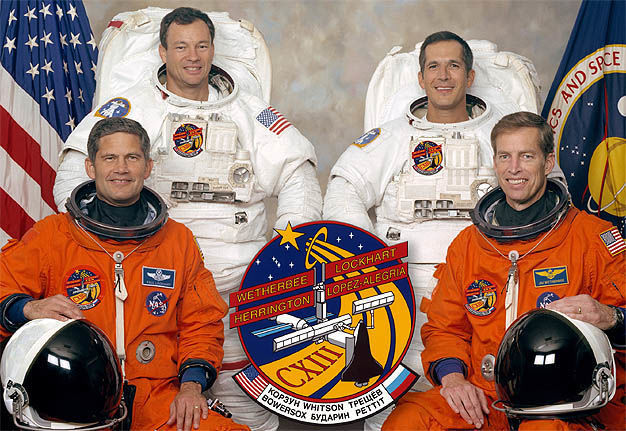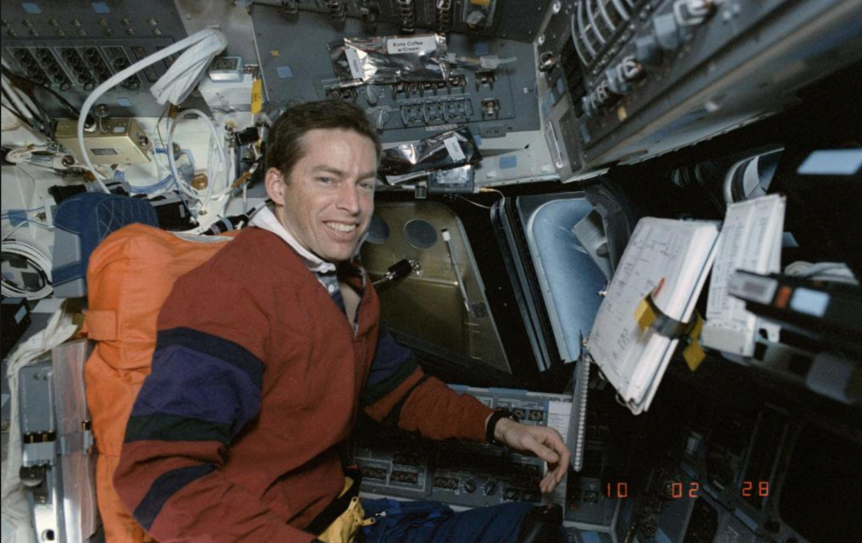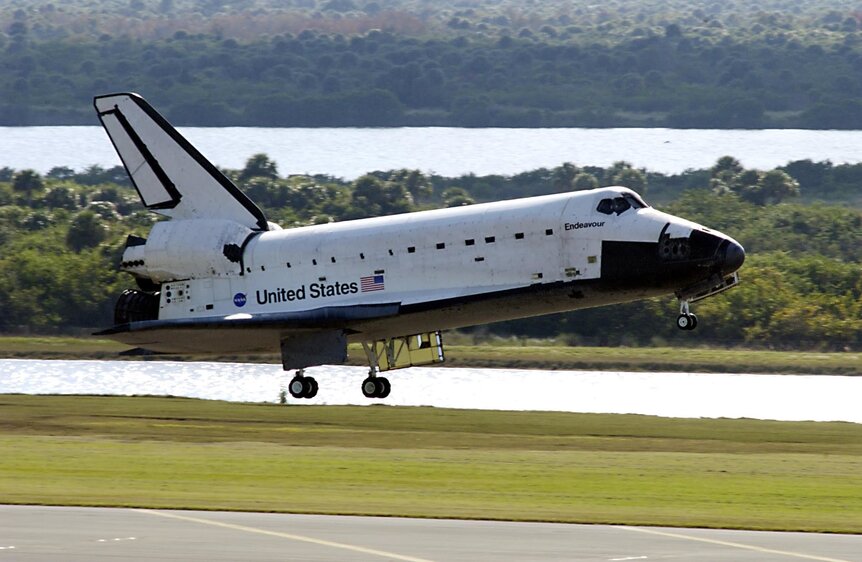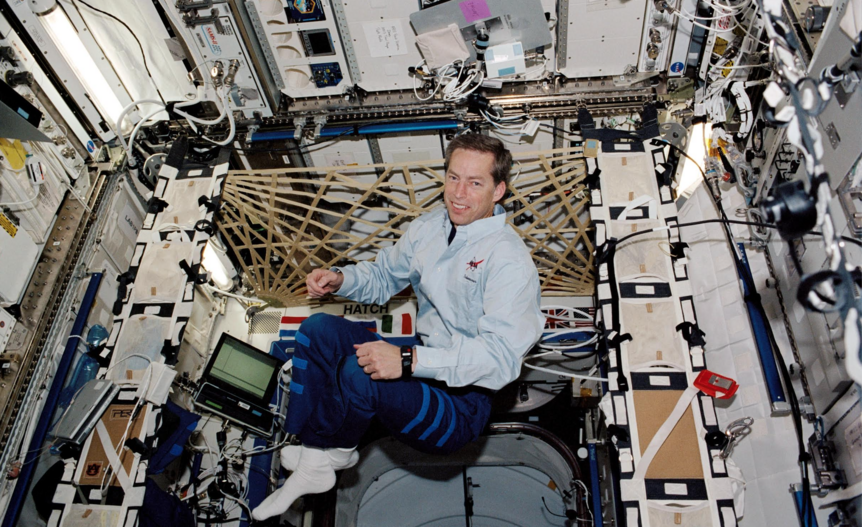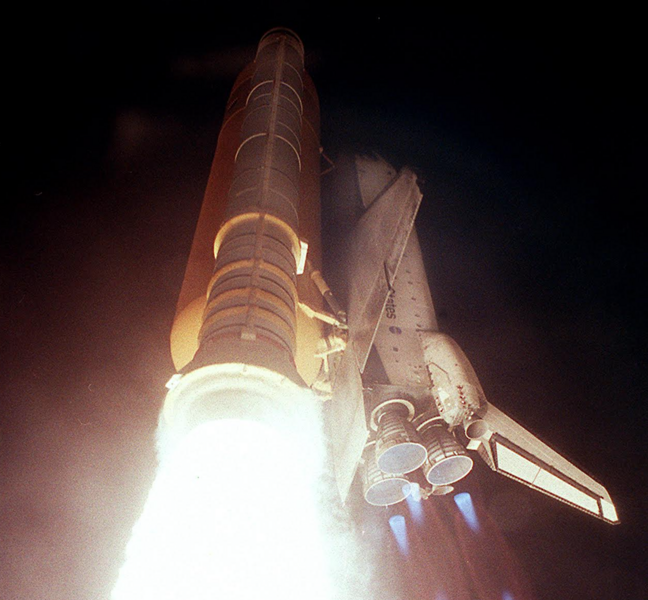Create a free profile to get unlimited access to exclusive videos, sweepstakes, and more!
NASA astronaut Jim Wetherbee looks back at Apollo 11 and the best space movies
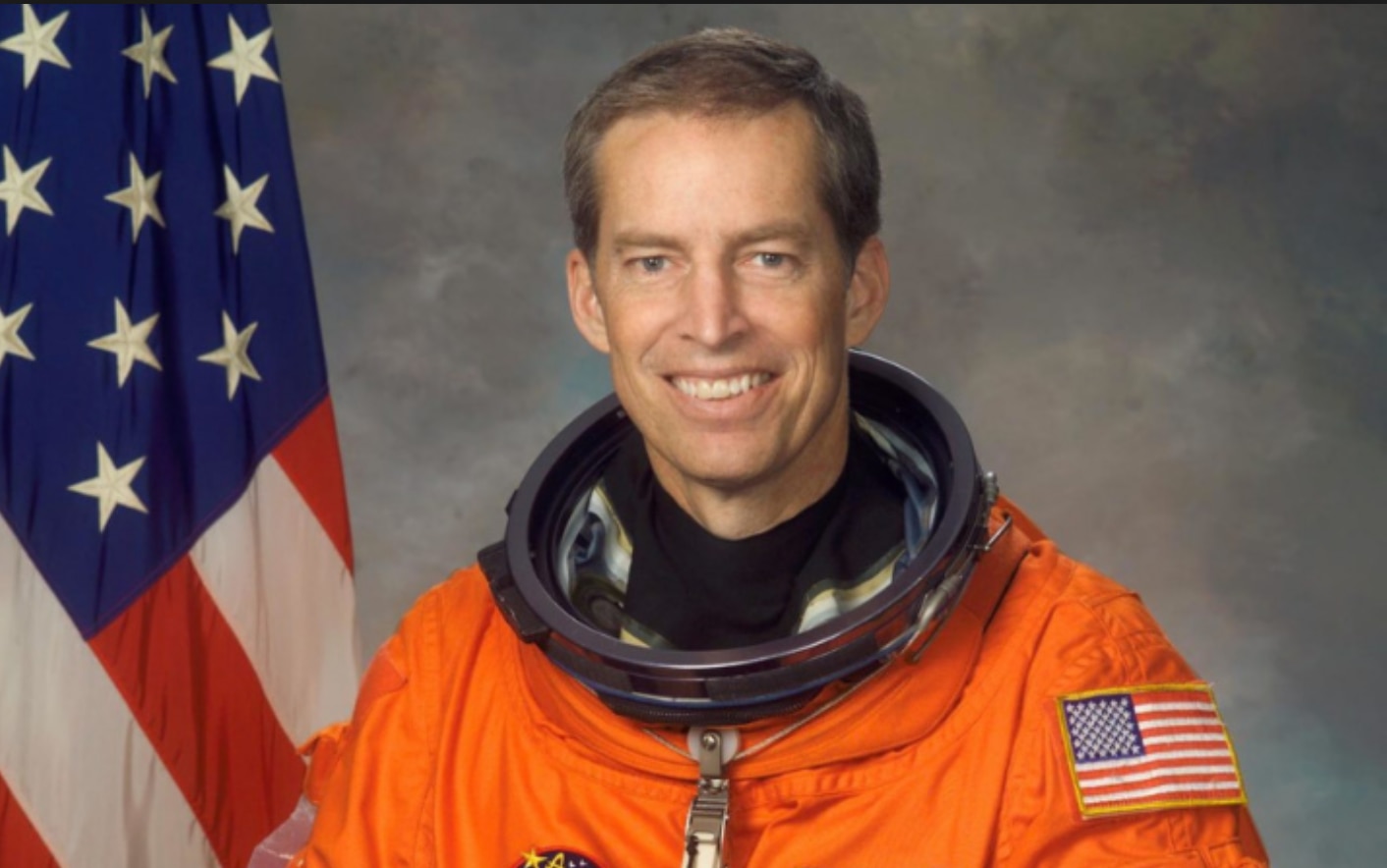
Commander Jim Wetherbee is one of NASA's most decorated and respected astronauts. His storied career began in 1985, when he entered the astronaut program as an ambitious Navy jet pilot; seven years later, in 1992, he took on his first shuttle command for NASA's STS-52.
He continued to climb the NASA stratosphere, leading shuttle missions five times (the most by any American), rising to Deputy Director of the Johnson Space Center, and serving as Director of Flight Crew Operations for three years. He also took on important responsibilities in the wake of the tragic Columbia disaster in 2003.
Throughout his storied career, which has included a total of six shuttle flights, he's experienced things us Earth-bound mortals have never glimpsed, including seeing the rose-tinted glow of the Aurora Borealis through his crew cabin windows; docking with Russia's MIR and the International Space Station multiple times; and playing hoops with the most famous moonwalker ever, Neil Armstrong. Wetherbee retired in 2005 and now gives lectures, consults with corporations on hazardous work environments, and can often be heard joyfully playing his drum set.
As this week marks the 50th anniversary of the Apollo 11 moon landing, SYFY WIRE sat down with the soft-spoken astronaut, who makes his home in the high deserts of Central Oregon, to hear about his finest hours in NASA's shuttle program, his favorite Hollywood sci-fi movies, and what he considers to be his greatest achievement amid a galaxy of highlights among the stars.
Looking back on all your NASA missions, do you have a favorite?
I'm asked that question a lot and had the privilege of flying six different missions and all of them are my favorite. If forced to choose, I'd say my first and my last. The first because not only was it a unique experience and it was a dream of mine to be an astronaut ever since I was ten years old, so to fulfill that dream was pretty exciting. I also flew with a great commander and I learned a lot from him, Dan Brandenstein.
Then, my sixth mission stands out because I'd been the Director of Flight Crew Operations and was responsible for the crew safety and crew training and readiness of all the missions. We'd had developed techniques of operation excellence over the years so my final mission was a chance to prove that the techniques worked. I had a great crew and it was a great mission with very few mistakes, constructed the space station and transferred the crew. Just a wildly successful mission.
What do you consider as your proudest hour while in NASA's shuttle program?
I was the Operational Search Director for the human remains of the Columbia crew. I flew the last successful mission before the Columbia accident and my responsibility was to coordinate the team and make the decisions on where to search and recover the remains with honor, dignity, and reverence. That mission was successful and stands out in my mind. When you see thousands of people pulling together to accomplish something greater than themselves it makes you feel good about our nation.
It's one of the things you learn as a naval aviator and test pilot, that death is a tragic part of the business and I'd seen a lot of death and destruction throughout my career. When the accident occurred, I was watching on TV because I was the off-going commander and it was a Saturday morning. I wasn't worried when we lost communication but when the vehicle didn't show up at the appointed time at the landing site I knew it was lost and there was no hope of recovery. When I drove into the center to offer my assistance, I was later assigned the responsibility of being the search director. As a military officer and former test pilot and astronaut, the job is to do it the best way you know how. Someday I hope to meet [Columbia Commander Rick D. Husband] and his crew in the next life and tell them we did the best we could.
The 50th anniversary of Apollo 11's historic moon landing is this July. Can you share your recollections of the mission and how do you rank it in the spectrum of human accomplishments?
Well I'd step back a couple flights earlier and talk about Apollo 8, which I thought was the coolest mission of all time. For George Low, who was running the Apollo program at the time, to make the decision that we are now ready to send three men away from Earth for the first time in human history, what an incredibly gutsy, momentous decision. I remember I was in high school at the time and was enthralled. I was up in my bedroom listening on the radio on the mission's progress. I couldn't believe we were sending three human beings, who got up one morning and left the gravitational bonds of Earth.
For Apollo 11, I was still in high school and vividly remember sitting watching it on TV and thinking this was the first and only time humans left Earth and stepped foot on another heavenly body. How could you not think that wasn't inspiring and awesome to be alive in this generation? Neil Armstrong was the perfect choice to be the first person to walk on the lunar surface. He was a professor at the University of Cincinnati where I went to grad school, so I played basketball with him one time. Just a great guy.
When they landed on the moon they initially thought they had about 18 seconds or so of fuel remaining. Talk about cool under pressure! Autopilot had him headed for a football-sized field with Volkswagen-sized boulders so he had to take over and find a different landing spot. Think about the ice water going through his veins to land with just 18 seconds of fuel left.
As a commander, what specific elements of Apollo 11 impressed you the most?
Just being the first, in any mission, requires such a high degree of professionalism, readiness, training, teamwork, cooperation, foresight, intelligence. It was the first time we were going to land and all the unknowns. People made educated best guesses, but still, you never know. And also a shout out to the ground crew, the flight controllers at Mission Control Center, what an awesome responsibility. As astronauts, our job is relatively easy because we live and die as a consequence of our own decisions. But the flight controllers have to live as a consequence of their decisions even if someone else dies, so that's incredible pressure.
What is the one thing Hollywood gets wrong in "astronauts in space" movies?
I like all Hollywood movies about space and every one has value, even ones like Armageddon, which is scientifically not possible, but it's still a great movie. Also, my brother is a film editor out in Hollywood. We helped support some of them like Space Cowboys. They came and filmed at the Johnson Space Center when I was the Deputy Director and I was coordinating with the helicopter pilot doing the aerial scenes. Clint Eastwood runs a highly professional crew and they do everything right.
The thing I loved the most about The Martian was the way the crew stuck together, even in times of adversity. The commander involved the crew and they made a joint decision to go recover the character of Mark Watney. You never saw crew members coming to fisticuffs or getting antagonistic toward each other. Most of the time there's always some drama among the crew in movies, and when you're facing hazards in an environment as dangerous as space there's no room for that kind of dissension. You operate with the highest of integrity and you're a team. I often tell children going off to space camp that the first thing we're looking for is teamwork. You have to be able to support the mission above all else.
What are some of your personal favorite outer space flicks?
I'd have to say The Martian for the reasons I mentioned. Clearly, Apollo 13 is another great movie. I had the opportunity to meet Ron Howard and Tom Hanks and his son, Colin, before they filmed the movie and they expressed the desire to get it right. Very few things did I see that were wrong. One was during staging of the launch and the crew was leaning forward and the commander looks over and says, "watch this," and the second stage ignites and they get slammed back in their seats. You strap in as tightly as you can. You don't want to move one millimeter, let alone three feet.
That lesson of teamwork and bringing the crew home was a great one, but one of the better lessons is often not talked about, and that is we never should have launched Apollo 13. Indications of that failure were seen in ground testing and it was ignored and it never should have had the explosion in space.
I also liked Interstellar. Hollywood took the equations of motion and was able to create accurate visuals and the physicists really loved it. And I thought Gravity was pretty good. Sandra Bullock called up to the space station and talked to Cady Coleman when Cady was flying onboard to get a sense of how to appear that she's floating around in weightlessness. They got a couple things really wrong in that film. Like you'll never see the particle coming if you get hit. It's going 15 times the speed of a bullet. You'll be dead in an instant and you'll never know it came. You also can't get from one orbit to another orbit in low Earth orbit to go first to the International Space Station then over to the Chinese Space Station. I still liked the movie, it had great visuals.
Can you share your hopes for NASA's Orion Project and our country's return to the moon by 2024?
My hope is that we're successful and that we do make it. Like everything else in human history, everything gets delayed. We can make it if we choose to, it will be difficult, but that's what our nation does, and we succeed at it. It's an exciting time to be a young person. If I were a young student I'd be thrilled at the prospect of working in an agency like NASA that has the vision to go back to the moon and then on to Mars.
What do you miss most about the shuttle program, being an astronaut, and being in space?
I remember my 20 years fondly but I don't miss anything. There are too many other things in the world I want to do and see and learn and practice. I love traveling around the country and helping companies involved in dangerous businesses and wrote my book, Controlling Risk. I remember most working with the people and the teamwork aspects, and certainly recall the missions and the views and the feelings. Riding on a rocket is an incredible privilege and I was so fortunate to be selected by our nation to fly in space.
